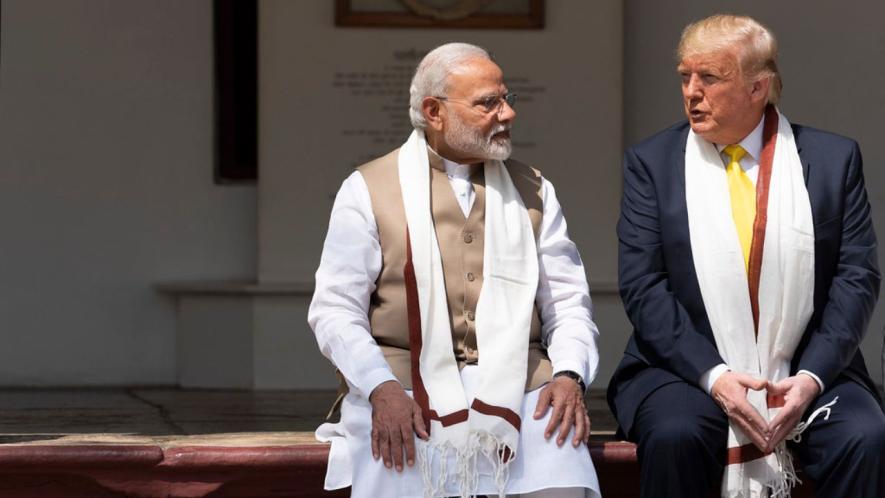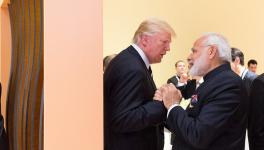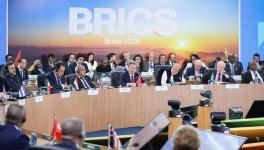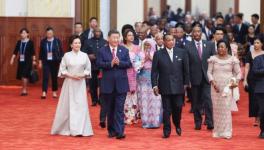Strategic Altruism is Dead: Why India Can no Longer Fantasise About its US Alliance

Image Courtesy: Flickr
There was a time—not far in the past—when the American approach to India was marked not by a ledger of immediate returns but by what authors Robert Blackwill and Ashley Tellis astutely called “strategic altruism”. This was a rare fiction of international diplomacy: Washington, unsettled by China’s rise, wagered that a strong, independent India would help sustain the balance of power in Asia, regardless of whether New Delhi followed Washington’s script in detail.
For two decades, America was content to see India rise—even if India’s markets were protected, its voting record contrarian, and its leaders notoriously reluctant to play “junior partner”. America’s chief demand was that India should strengthen itself and, in so doing, buttress the security of the “liberal international order.”
One could almost have mistaken this for American magnanimity, a virtue seldom seen among empires. All that—like so much else—has now vanished beneath the sharp blade of America’s new whim. President Donald Trump’s tariffs represent a doctrinal break, from strategic patience to strategic impatience, and from magnanimity to a crude arithmetic of “reciprocity.” The result is that today, India’s back is up against the wall, its room for manoeuvre is growing worryingly narrow.
The facts are less forgiving than the dominant rhetoric. America remains India’s largest single export market, accounting for 18% of total merchandise exports, amounting to $86.5 billion in a $4.3 trillion economy. The next largest partner, the United Arab Emirates, takes in less than half that volume.
To dismiss this relationship as a mere trifle — “just 2% of GDP”— is to ignore that India’s export engine sustains nearly 90 million jobs, a significant portion owing to trade with the US, not least of all in labour-intensive industries, such as textiles, apparel, gems and jewellery etc.—all first in line for tariff pain.
These are not abstract numbers: these represent millions at risk of economic displacement, with over half of India’s US- bound exports by value imperilled by the latest American measures. For all the talk of a “global partnership,” the relationship is now reduced to its transactional core.
The American logic is clear: the age of strategic altruism is over. India is now expected simply to “give without asking what we are getting in return”—an argument so often made by pro-US strategists in Delhi. Yet, nothing in Trump years indicates that such obeisance is rewarded: not in investments, nor in diplomatic concessions, nor tangible economic benefit.
A 50% tariff has shattered India’s competitive advantage overnight. Exemptions have been rendered nearly meaningless by the persistent threat of Section 232 investigations—an endless game with rules that shift at the drop of a presidential tweet. In sectors, such as electronics and semiconductors, American scrutiny makes long-term planning almost futile.
If India could claim its place among the world’s leading economic innovators, matters might be different. But the reality is stark. After a decade of stable governance and grand declarations of “Make in India,” our Research & Development and innovation landscape remains listless. High-technology exports, patents, advanced manufacturing—all lag markedly behind China, Korea, and even Vietnam.
Bereft of genuine dynamism, we substitute summits and new corridors for real progress; our research parks brim with numbers rather than results.
There is no clearer illustration of India’s position than the tale of Russian oil. Discounted Urals crude, paraded as a diplomatic victory, brought scant relief to Indian households while delivering windfall profits to a select few. The Ambani Group emerges as among the largest beneficiaries, with contracts inflating corporate balance sheet while pump prices remain indexed to world markets. The 25% US penalty now slapped due to Russian oil purchases underlines the constraints of one-dimensional “victories”—and if cheap oil was a diplomatic coup, why is punishment not counted as a diplomatic blunder?
The lesson is simple: the comfort of great power friendship proves evanescent when pitted against another’s calculations. One must ask, then, if India’s famed “strategic autonomy” was more valuable than admitted by India’s power brokers.
Now, India stands wedged between an American administration conjuring up tactical manoeuvres in place of norms and a Chinese neighbour whose agenda is anything but altruistic. We cannot afford illusions; alliances based on sentiment or showmanship are no substitute for hard, predictable rules. Even as trade with China overtakes that with the US, Beijing, however unpalatable, offers a kind of predictability—an unimpressive virtue, perhaps, but of real value in a turbulent world.
The years have made one lesson clear: wishful thinking makes a poor foundation for strategy. Strategic altruism was always contingent on another’s calculation of advantage— a fact mistaken far too often for selfless friendship. Today, India’s export base, its jobs, and its so-called diplomatic triumphs stand exposed to the cold winds of global reality. Our lack of innovation, reliance on incremental reforms, and reluctance to confront our dependence have left us with precious few options.
For a country once celebrated for the independence of its judgment, there is little dignity in surrendering to another's volatile tactics. If the American embrace has grown conditional, if fortunes can pivot on a stroke of foreign pen, then sentiment must yield to sobriety. The age of comfort is over, and with it, the space for self-deception. India’s future now demands resolve, realism, and the discipline to ground its power in its own achievements—not in the borrowed light of another’s convenience.
The writer has a background in economics from Jamia Millia Islamia University and analytics from Delhi School of Economics. He runs an Instagram page and YouTube channel on economics. The views are personal.
Get the latest reports & analysis with people's perspective on Protests, movements & deep analytical videos, discussions of the current affairs in your Telegram app. Subscribe to NewsClick's Telegram channel & get Real-Time updates on stories, as they get published on our website.
























